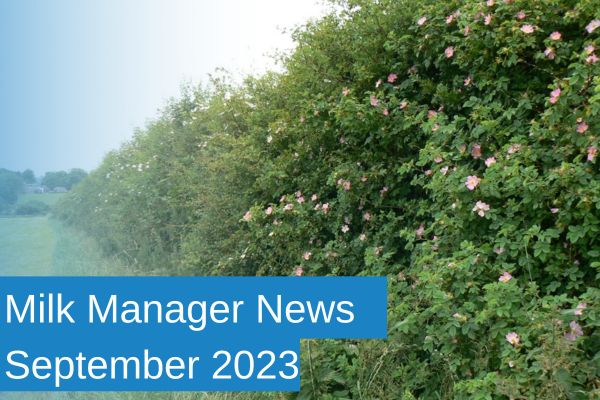MMN September 2023 – Nature Auditing and Restoration
11 September 2023From 2025, Scottish Government intends that 50% of a farm’s Basic Payment Scheme (BPS) support will be conditional on set nature outcomes. Currently it is unclear what these outcomes will look like, and what minimum requirements will be set. However, the common occurrence in all discussions is the notion of having to complete a biodiversity audit. For a while now there has been much speculation that carbon auditing, something many are now familiar with, would be built into policy and future payments, but biodiversity is a different, less clear animal.
In the past few months, consultants have been speaking to farmer groups across Scotland on the topic of biodiversity auditing and how we value nature. During that process, it has become clear that, while farmers may know what habitats they have on their farm, they do not seem to have a firm grasp on the condition of those habitats and more importantly, the actions needed to improve the quality of those habitats. Scottish Government thinking appears to be, action to improve biodiversity can only be conducted once a proper inventory is taken.
This article is not going to tell you what that inventory will look like, or what actions should be taken to build the nature value of the habitats you have on the farm. What this article will do however, is discuss the return of a new funding scheme that could facilitate investment in new habitats and the restoration of existing ones.
The Nature Restoration Fund (NRF) has returned for another round of applications. The fund aims to provide support for natural capital projects, particularly as it relates to habitat creation, restoration and connectivity across the farmed landscape and elsewhere. The fund offers up to 90% funding to complete bespoke nature projects that do not neatly fit into comparative environmental schemes. Unlike other schemes, the fund does not set management criteria; in contrast it is concerned about positive nature outcomes.
The NRF was developed to address the drivers of biodiversity decline and our nature crisis, including land-use change, direct exploitation of organisms, mitigation and adaptation to climate change, pollution and invasive and non-native species impacting nature. The fund has five core priorities:
- Habitat and species restoration
- Freshwater restoration
- Coastal and marine initiatives which promote restoration
- Control of invasive non-native species
- Projects to enhance and connect nature across and between urban environments
In addition to these funding priorities, preferential treatment will be given to applications that; bring together strong partnerships, bring together additional funders, can demonstrate clear additionality over and above the project itself and projects that have a clear, sustainable vision for how the project can be maintained following the end of the fund’s contract. Also, the more funds requested the higher the expectation of landscape scale benefit. Funding for projects starts at £25k but can rise to £250k and beyond depending on funding tier accessed.
Dairy farming has long been, generally, highly productive but a consequence of this has been little scope for the integration of nature. However, where the NRF differs from other schemes is that there are no restrictions placed upon a business that it does not place upon itself. Some past successful projects have included the creation of a 0.4-hectare pond on a farm to the tune of around £35k, or the establishment of 8,900 metres of hedgerows with grant aid of around £200k, with both projects including the necessary capital infrastructure.
Those businesses interested in investigating the potential of the NRF to build nature into their farm should seek advice and input from their agricultural advisor and NatureScot. Those businesses interested in having a baseline biodiversity audit completed can receive up to £1,000 towards the cost of a biodiversity specialist advice plan through FAS. See the link below for more information: https://www.fas.scot/specialist-advice/
alexander.pirie@sac.co.uk; 01292 525036
Sign up to the FAS newsletter
Receive updates on news, events and publications from Scotland’s Farm Advisory Service

